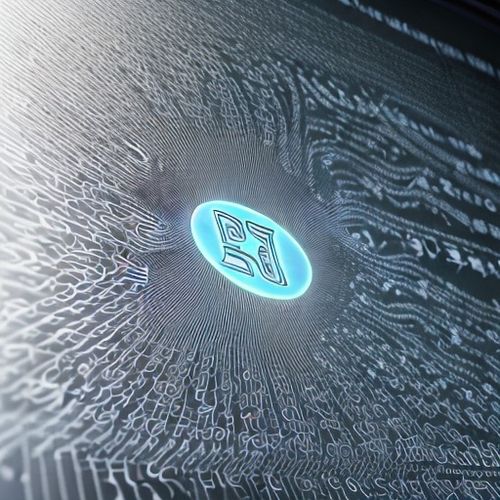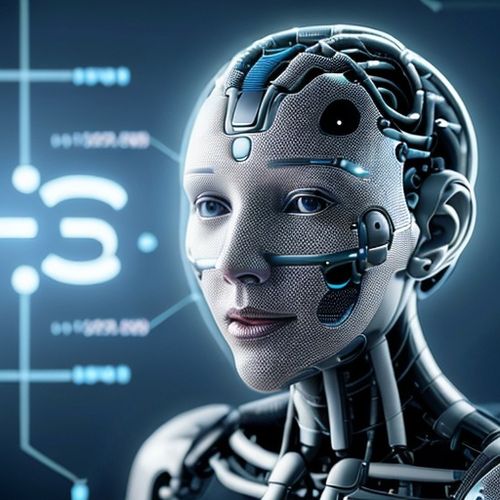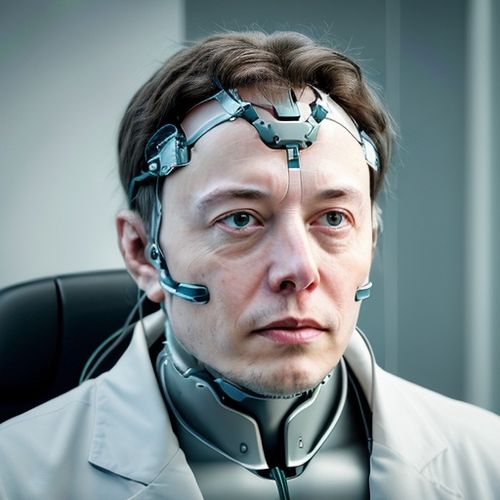The controversial neurotechnology company Neuralink has received approval from the U.S. Food and Drug Administration to begin human trials of its brain-computer interface (BCI) technology. This landmark decision marks a significant step forward for Elon Musk's ambitious vision of merging human cognition with artificial intelligence, while simultaneously raising profound ethical and safety concerns among scientists and ethicists worldwide.
Founded in 2016, Neuralink has been developing ultra-high bandwidth brain implants designed to enable direct communication between human brains and computers. The company claims its technology could eventually help treat neurological conditions, restore mobility to paralyzed patients, and even allow humans to keep pace with advancing artificial intelligence. However, the path to human testing has been fraught with controversy, including allegations of animal welfare violations during earlier research phases.
How Neuralink's Brain Chip Works
Neuralink's device, about the size of a large coin, is designed to be implanted flush with the skull by a specialized surgical robot. The current version contains 1,024 electrodes distributed across 64 ultra-thin, flexible threads that are inserted into the brain's motor cortex. These threads - significantly thinner than a human hair - are intended to detect neural signals which can then be decoded and translated into digital commands.
The company has demonstrated how the technology could enable a paralyzed individual to control a computer cursor or robotic limb simply by thinking about the movement. In more advanced applications, Musk has suggested the chips might one day facilitate direct brain-to-brain communication or allow users to "save and replay memories" - claims that many neuroscientists view as wildly premature given current technological limitations.
The Road to Human Trials
Neuralink's FDA approval comes after years of testing on animals, primarily monkeys and pigs. These animal studies have yielded both promising results and significant controversy. In 2021, the company showcased a monkey playing the video game Pong using only its mind via a Neuralink implant. However, subsequent reports revealed that many test animals suffered severe complications, including brain swelling, seizures, and in some cases death.
Documents obtained by the Physicians Committee for Responsible Medicine through public records requests showed that monkeys implanted with Neuralink devices developed various infections, with some chewing off their own fingers allegedly due to neurological distress. These revelations led to ongoing federal investigations into potential animal welfare violations.
The FDA had initially rejected Neuralink's application for human trials in early 2022, citing dozens of safety concerns that needed addressing. According to agency staff, these included questions about the implant's lithium battery, the potential for the device's tiny wires to migrate within the brain, and whether the implant could be removed without damaging brain tissue.
Ethical Concerns and Scientific Skepticism
Neuralink's human trials announcement has reignited debates about the ethics of brain-computer interfaces. While many experts acknowledge the technology's potential medical benefits, others warn about the risks of allowing a private company - particularly one led by the mercurial Elon Musk - to pioneer such invasive neurotechnology.
"We're talking about implanting devices that literally penetrate brain tissue," says Dr. Susan Hockfield, professor of neuroscience at MIT. "The long-term effects are completely unknown, and we must consider not just physical risks but psychological and societal impacts as well."
Privacy advocates have raised alarms about the potential for brain data collection. Neuralink insists its devices will have robust security measures, but experts note that any wireless system connected to the internet could theoretically be hacked. The prospect of companies or governments potentially accessing individuals' neural data presents unprecedented privacy challenges.
There are also concerns about informed consent. Patients with severe disabilities may feel pressured to participate in trials out of desperation, potentially clouding their judgment about risks. The history of medical experimentation on vulnerable populations adds troubling context to these concerns.
Competitive Landscape and Scientific Merit
While Neuralink has garnered outsized media attention due to Musk's celebrity status, it's far from the only player in the BCI field. Academic researchers have been developing brain-computer interfaces for decades, and several other companies are further along in human testing.
Blackrock Neurotech, founded in 2008, has already enabled paralyzed patients to control computers and robotic limbs using its implants. Synchron, another competitor, has implanted its stent-like device in multiple patients without requiring open-brain surgery. Both companies took a more gradual, medically focused approach compared to Neuralink's bold claims and rapid timeline.
Many neuroscientists argue that Neuralink's main innovation isn't the core technology - which builds upon decades of academic research - but rather the miniaturization and wireless capabilities. "The science isn't as revolutionary as the marketing suggests," notes Dr. Andrew Schwartz, a pioneer in BCI research at the University of Pittsburgh. "What's new is the packaging and the ambition to move quickly to human applications."
Potential Medical Applications
Despite the controversies, Neuralink's technology could offer life-changing benefits for people with severe neurological conditions. The initial human trials will focus on patients with paralysis due to spinal cord injuries or amyotrophic lateral sclerosis (ALS). For these individuals, a successful BCI could restore some degree of independence by enabling control of computers or mobility devices.
Longer-term medical applications might include treatment for Parkinson's disease, epilepsy, depression, and other neurological disorders. Some researchers speculate that BCIs could eventually help restore vision or hearing by bypassing damaged sensory organs and directly stimulating relevant brain areas.
However, medical experts caution that moving too quickly could backfire. "The field has learned from past neurotechnology failures," says Dr. Leigh Hochberg, a neurologist at Massachusetts General Hospital. "Devices that work beautifully in the lab often encounter unanticipated challenges when implanted long-term in human patients."
Transhumanist Visions and Public Perception
Beyond medical uses, Musk has framed Neuralink as a necessary response to the existential threat of artificial intelligence. He argues that by merging with AI through brain-computer interfaces, humans can avoid becoming obsolete. This transhumanist vision has captured public imagination but strikes many neuroscientists as science fiction.
"The idea that we're going to suddenly achieve some symbiotic relationship with AI through a brain implant is fanciful at best," says Dr. John Krakauer, a professor of neurology at Johns Hopkins University. "The brain doesn't work like a computer, and we're nowhere near understanding consciousness well enough to merge it with machines."
Public opinion on Neuralink remains divided. Some view it as groundbreaking innovation that could redefine human capabilities, while others see it as a dangerous overreach by a tech billionaire with a history of overpromising. The coming human trials will likely intensify this debate as abstract ethical concerns give way to concrete results - both positive and negative.
Regulatory Challenges Ahead
Neuralink's progress highlights how existing regulatory frameworks struggle to keep pace with rapidly advancing neurotechnology. Current FDA guidelines weren't designed with brain-computer interfaces in mind, particularly those intended for elective enhancement rather than medical necessity.
Legal scholars point out that once these devices move beyond treating disabilities into the realm of cognitive enhancement, entirely new ethical and regulatory questions emerge. Who gets access to these technologies? Could they create new forms of inequality? How do we prevent coercion - whether from employers, insurers, or governments - to adopt brain-altering technologies?
Internationally, responses vary widely. Some countries have imposed moratoriums on certain types of neural technology research, while others have embraced it with fewer restrictions than the U.S. This patchwork regulation raises concerns about "neurotechnology tourism," where companies shop for the most permissive jurisdictions.
The Path Forward
As Neuralink prepares to recruit human subjects, all eyes will be on how the trials are conducted. The company has pledged transparency but has been criticized for operating with unusual secrecy compared to academic and medical device industry norms. Independent oversight will be crucial to ensuring participant safety and data integrity.
Neuroscience experts generally agree that brain-computer interfaces hold tremendous promise but caution against unrealistic expectations. "This is likely to be a decades-long process with incremental advances," says Dr. Helen Mayberg, a neurologist at the Icahn School of Medicine. "The brain is the most complex object in the known universe - we won't unlock its secrets with a single device."
For now, Neuralink's FDA approval represents both a scientific milestone and a test case for how society will navigate the emerging era of brain-altering technologies. The outcomes of these first human trials may determine whether Musk's vision leads to transformative medical breakthroughs or becomes another cautionary tale about the perils of moving too fast in uncharted neurological territory.

By Emily Johnson/Apr 10, 2025

By John Smith/Apr 10, 2025

By Christopher Harris/Apr 10, 2025

By Noah Bell/Apr 10, 2025

By Rebecca Stewart/Apr 10, 2025

By Victoria Gonzalez/Apr 10, 2025

By Amanda Phillips/Apr 10, 2025

By Emma Thompson/Apr 10, 2025

By Lily Simpson/Apr 10, 2025

By Emma Thompson/Apr 10, 2025

By Sophia Lewis/Apr 10, 2025

By Rebecca Stewart/Apr 10, 2025

By Noah Bell/Apr 10, 2025

By Sophia Lewis/Apr 10, 2025

By Christopher Harris/Apr 10, 2025

By Eric Ward/Apr 10, 2025

By Daniel Scott/Apr 10, 2025